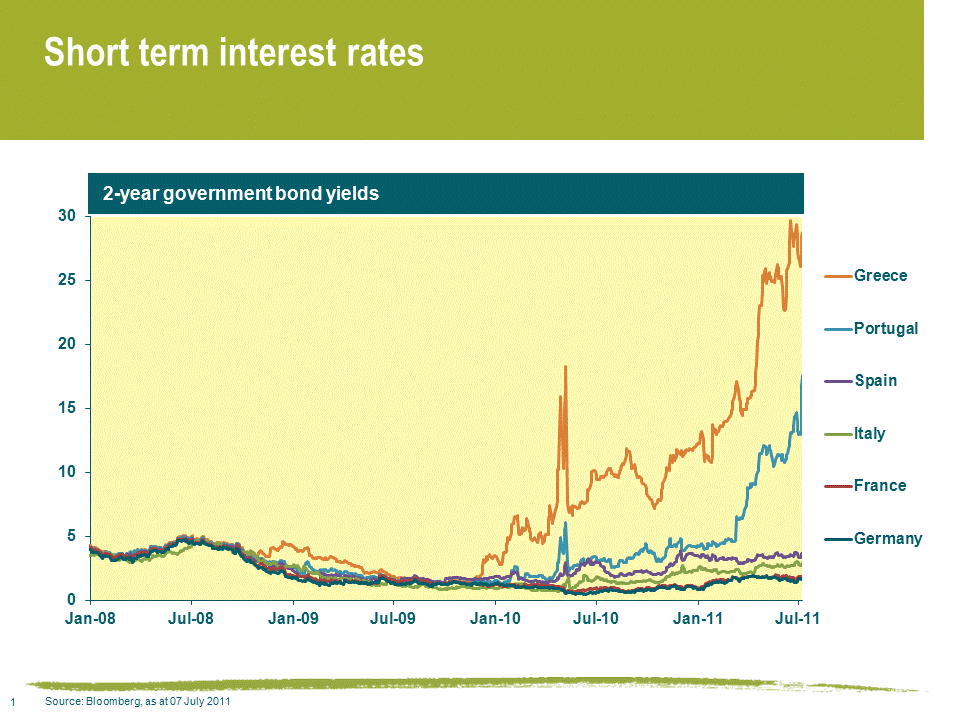Orthodox in an unorthodox world
The main purpose of the European Central Bank (ECB) is to use orthodox monetary policy with regard to setting money supply and interest rates to achieve price stability. Today, Trichet reiterated this by restating his desire to “create price stability for the 331 million federal citizens of the Eurozone.” In order to do that, the ECB believes that a combination of controlling money supply and interest rates is paramount.
Unfortunately, as discussed previously, money supply and interest rates are no longer the same in each sovereign state (previous blog). Money is departing the weaker states towards the stronger states, while interest rates for the private and public sector have diverged between nations. This is best illustrated below by the huge discrepancy in short term interest rates different governments face.
The ECB believes that money supply and interest rates matter. If countries experience money supply outflows and high rates, as citizens desert their nations financially (i.e. the small sovereign periphery) then presumably severe deflation and recession are to follow automatically. However, the larger core should experience the opposite problem in a mild way. The ECB and governments are attempting to limit this effect via monetary and fiscal means, though the fact remains they are reducing the size of this problem, and are nowhere near eliminating it.
This means the Eurozone is a Eurozone in name only, one currency, hugely divergent sovereign monetary systems and economic outlooks. The effects of this tightening on the peripheral Eurozone countries has scarily not been felt yet as it usually takes 18 months for monetary policy effects to come through. If you think the periphery is weak now, well according to the monetary orthodox you ain’t seen nothing yet.
The value of investments will fluctuate, which will cause prices to fall as well as rise and you may not get back the original amount you invested. Past performance is not a guide to future performance.


18 years of comment
Discover historical blogs from our extensive archive with our Blast from the past feature. View the most popular blogs posted this month - 5, 10 or 15 years ago!


Bond Vigilantes
Get Bond Vigilantes updates straight to your inbox






